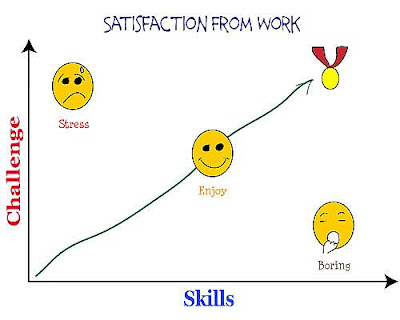As a sequel to the program we had to visit one of the participants’ Shri Sameer Golwalekar, a multidimensional personality having interests in multitude of subjects. Our discussions wandered into many topics such as world history, Indian culture, Current business scenario, European psychology, J Krishnamurthi etc. At the end of the discussion he presented us with a book titled “On Dialogue” written by David Bohm, Professor of Theoretical physics. The specific choice of the gift was not random, it was after understanding the methodology, intention and service that we provide to the Business fraternity, that he suggested that we must go through this tome.
Tuesday, July 31, 2012
True Dialogue (Part 1 : a proposal)
As a sequel to the program we had to visit one of the participants’ Shri Sameer Golwalekar, a multidimensional personality having interests in multitude of subjects. Our discussions wandered into many topics such as world history, Indian culture, Current business scenario, European psychology, J Krishnamurthi etc. At the end of the discussion he presented us with a book titled “On Dialogue” written by David Bohm, Professor of Theoretical physics. The specific choice of the gift was not random, it was after understanding the methodology, intention and service that we provide to the Business fraternity, that he suggested that we must go through this tome.
Tuesday, March 13, 2012
Profit and Profitability
Sunday, November 6, 2011
Killing Business Innovation
1. Spends without focus. Firms pour money into traditional pockets.... training, sales promotions, advertisements, product / service development, but research shows that the market refuses to give them credit for this. Business owners make all kinds of excuses for this state of affairs –“We’re in a tough industry” or “All the Street cares about is short-term results”– but customers just aren’t buying it.
2. Makes budgets an entitlement. Senior managers who negotiate for funding typically make their decisions on the basis of the prior year’s budget or the company’s general cost concerns. At the same time, department staff view the budget funds as an entitlement (we ought to get this... attitude) rather than as a investment focused on the business. The result? Business as usual, and the same (boring / off the shelf ) customer offerings.
3. Assumes people in the field know nothing. Most firms treat departments as seperate entities /functions run by people with respective special backgrounds. A typical business owner / CEO thinks, “Our technical people are in charge of product development – they have to develop and educate the sales people about the new product. Sales persons will never understand the complexities of engineering.” This mindset almost guarantees that products and services don’t properly connect within the organisation.
4. Puts Marketing, Finance, Administration etc. in different cubicles. These distinctly different functions are more or less autonomous. They rarely communicate, except to consider cutting budgets when overall business performance lags. Such disunity ensures that no one pays attention to business of what the customer needs and wants from the company as a whole.
5. Detaches Marketing from the customers. Marketing people can’t do much for customers beyond feeding them propaganda. For eaxample when premium resort customers often lack a decent meal or even a pillow, the poor folks in Marketing can only report on customer rage.
6. Don’t rock the boat ..attitude. Harmony is given priority than doing more business. Business leaders / top management shy away from organizing their businesses around customers' needs , arguing that doing so is “too complicated” or “too disruptive” for them. But for the organic growth of the business, shaking up is needed. Only then the sustainable benefits will flow to the customers, employees, shareholders and the economy as a whole.
We are exposed this kind of mindsets in our retainer engagements (DNA Crafting) and it frequently challenges us in various forms. With a balance of approaches we have begun to grapple with the situations. But we hold on to our methodology of 'Merciless provocation" though it is interpersonally risky, yet the only known effective method. Changing mindsets emerging to be our specialisation.
contributed by Sasikanth prabhu
Saturday, March 26, 2011
Mind Your Business
Thursday, July 9, 2009
Interest: the key to job involvement

When I make presentations about our Business strategy workshops and the Organisational renewal workshops to the business owners, we ask: what is your major challenge in your organisation? Four out of five owners say that, their people do not take ownership of what they do – they do not take the company as their own. In spite of the reward offers and exposure to opportunities, the people do not give their best. They do not have positive attitude towards the company.
Of course there are many reasons for such lack of involvement of people in business. One of them is lack of interest in the job, the function, the process etc. Usually the hiring managers in business give more importance to the knowledge, skills and abilities of a job candidate than to the interest part. There are intelligent and academically brilliant candidates who can overwhelm the hirers by their sheer scholasticism and articulation. But when it comes to completing the jobs with heart’s touch such candidates may take a back seat. It is because the job holder get things done by their smartness and not by their interest in it.
The term interest is used to indicate a mental disposition towards something real or abstract. The way of interest is the way of the heart. The people hirers must give priority to interest patterns of the candidate than to the skills, abilities and the experience. If the interest is their, the other things can be acquired than vice versa. Interest is a natural energiser and when it is connected to business, there is overall goodness - the ownership blossoms.


